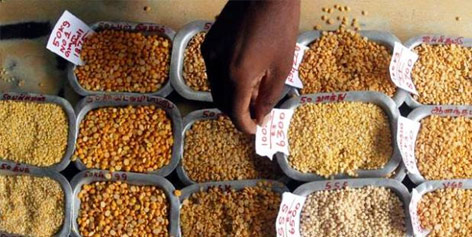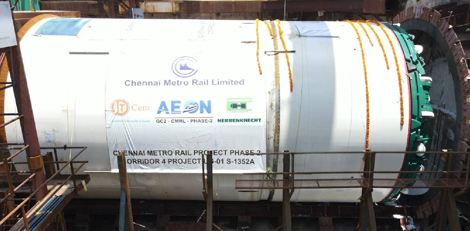In TN, in last fiscal year food grain production exceeded 100 lakh tonnes
Posted on: 09/May/2019 9:53:59 AM

The state government has formulated region -specific and crop-specific technology based interventions in order to achieve 110 lakh metric tonne of food grain production. The important point is the production touched 101 lakh tonnes and this was as per the third advance estimates available with the agricultural department for the last fiscal year. It is well known that both monsoons have failed and this has affected the production.
In the months of July and in August, the final estimates would be slightly revised. The information collected is the production stood at 107 lakh metric tonnes in the previous financial year. There was poor summer rains in the last year but subsequent good rainfall was triggered by the south-west monsoon in Karnataka. It is now said that surplus water from Cauvery reservoirs across the border had helped the lower riparian state. The productivity was enhanced because the Mettur reservoir reached full storage last year.
According to a senior official it is clear that except for the drought in the places like Sivaganga and Ramanathapuram there was reasonably good production. It is important to mention that the situation was worse two years back and the food grain production plunged to 52 lakh metric tonnes.
In the months of July and August, Karnataka released 124.69 tmcft and 176.51 tmcft of water due to heavy rainfall is known. The important information is special kuruvai package of Rs 115 crores was provided by the state government. The package that included three phase power supply for 12 hours a day, subsidies for high yielding paddy seeds plus power tiller and rotavator, solar powered pump sets, diesel engines, mechanised farming, micronutrients, fertilizers and PVC units have contributed to raise the coverage.
It must be noted that when compared to the previous year the paddy coverage fell short by 1.127 lakh hectares. The reason could be because of the delay in the opening of Mettur sluices by a month instead of 12th June. It was later pointed out by another official that the millet production could be sustained given the assistance to the rain-fed farmers under Mission on Sustainable Dry Land Agriculture and National Food Security Mission. The official explained about many activities like demonstration on improved technologies plus others like certified seed distribution, hybrid seed distribution, integrated nutrient management and inter-cropping that played superb roles. He finally threw light on how less water intensive crop cultivation was promoted among the small and marginal farmers.







